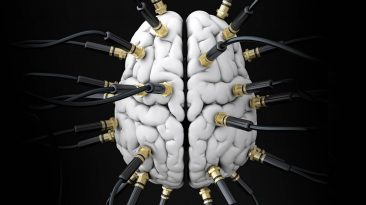What if I told you that every time you’re asleep in your bed at night, your private thoughts might be compromised? What if, when you’re dreaming about all your hopes, fears, and ideas, a cerebral security breach could lead to the ultimate psychological heist?
That’s right. Your dreams are about to be hacked. What powers would these dream-hackers possess? And how would it change our society?
Dreams are extremely valuable. They generate ideas, inspiration, help us solve problems, and much more. But despite their importance, scientists still aren’t sure why we dream.
We have several theories, like dreams are a way to process emotions, express our desires, and gain “real-life” practice when confronted by potential dangers. Other theories suggest that dreaming has no real purpose at all.
Either way, there’s still something going on inside your head. You and the rest of the human population spend about six years of your life dreaming in REM sleep. And it’s more if you include dreams in the other sleep stages.
That’s a lot of information … that’s just there for the taking. What if a shadowy group had the ability to extract those private little thoughts from that head of yours? What kind of information could they extract?
Governments could spy on their citizens, making sure no one is planning an uprising. Industry saboteurs could spy on other competitors’ technology by entering their workers’ dreams.
The police could try to identify murderers or solve other crimes by entering suspects’ dreams. And what about those “questionable” dreams you don’t want to tell anyone about?
Every awkward dream could be exposed, and used against you, potentially even to prosecute you. Think you could dream up a lawyer? And that’s just if these dream-hackers are taking information. What if they left some behind?
This planted info could lead to anything from companies filling your dreams with advertisements, to other people manipulating your emotions, to how you perceive the world. You could wake up one day, and hate all your loved ones, and not even remember why. Or, on the flip side, you could wake up with a yearning desire for that mailman. Have they always been that cute?
So, with those dream-hackers out there, how would you sleep at night? Well, if people knew their dreams could be breached, they would try to stop dreaming altogether.
People might try to take dream suppressing drugs to lock down their slumbering state. People who couldn’t afford the drugs would be chugging coffee, and fighting off sleep as if Freddy Krueger were about to show up.
So, could you prep for the upcoming dream-invasion? Could you hack into your own dreams, and set up a mental firewall? Well, there is something called Dream Incubation, which happens when you plant a seed for a specific dream to occur.
This method is used when people want to solve a problem while they sleep. You should start thinking about all the locked doors and security systems you can. When asleep, we dream about every 90 minutes, so you need to give yourself time to experience it. About 7-8 hours of sleep is needed. Steel your mind.
And most importantly, encourage yourself to remember the security you added when you wake up. Because if you don’t, you’ll have to start again.
But this is just science fiction, right? Well, since 2017, MIT has been running its Dream Lab. Here, a group of researchers is developing a technology capable of mining the subconscious. Their current pride and joy is a device called Dormio, which tracks a wearer’s muscle tone, heart rate, and skin conductance, feeding audio cues at certain stages of sleep, that then become part of the wearer’s dreams.
Since researchers are already able to influence the dream and extract some information, dream-hacks could really happen. All we’re waiting for are smaller devices that can be applied undetected, without a person’s knowledge or consent.
It might be a good idea to start taking control of your dreams right now. That way, when the dream-hackers come for you, you’ll be ready. But what if we were able to remove the problem entirely, and took away the cache of valuable dreams?
Subscribe to What-If on YouTube or follow the show on Facebook Watch.
Sources
- “Dormio: MIT’S Sleep Interface System Controls Dreams, Augments Creativity – The New Stack”. Mok, Kimberley. 2018. The New Stack.
- “Experts Weigh In With 7 Theories About Why People Dream“. 2020. Verywell Mind. 1.
- “How Dreams Work”. Howstuffworks.
- “Viewpoint: Why don’t people talk about their dreams?”. 2020. BBC News.
- “The Functional Role Of Dreaming In Emotional Processes”. Frontiers In Psychology 10. doi:10.3389/fpsyg.2019.00459.
- “Sensory Incorporation In Dreams”. 2020. Psychology Today.
- “Can You Learn Anything While You Sleep? “. Writer, Bahar. 2019. livescience.com.



























